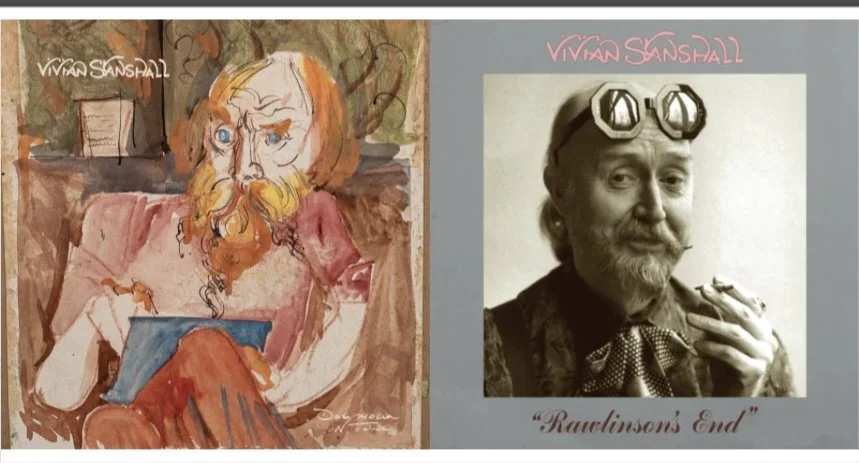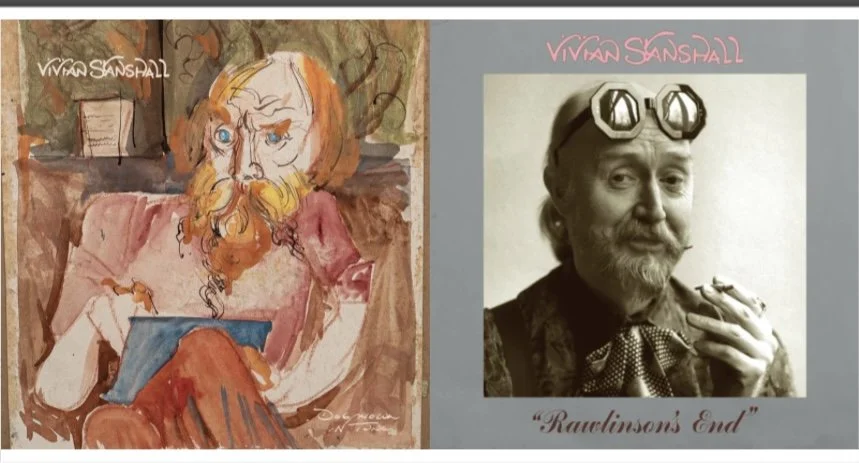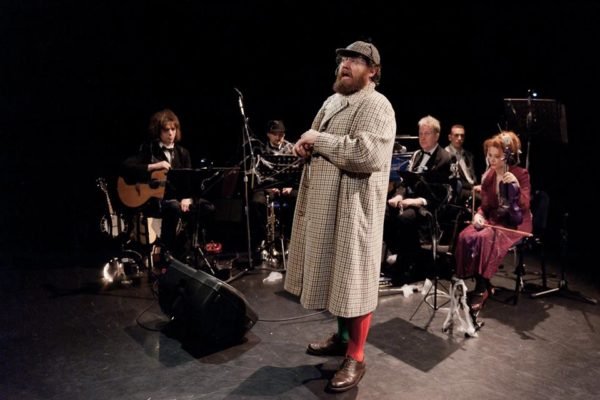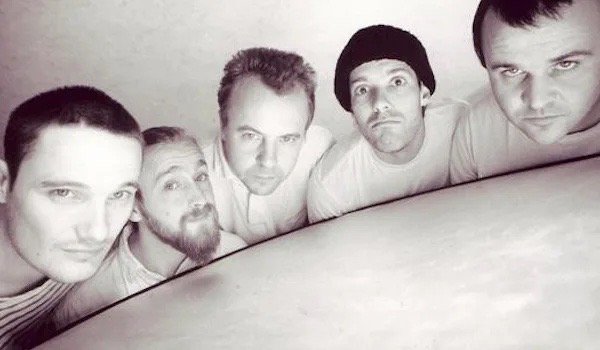With a little help from Viv’s friends
TWO ‘new’ albums from Bonzo Dog Doo-Dah Band star Vivian Stanshall have finally been released, nearly 30 years after his death - and the task of piecing together the work he left behind has been a Merseyside affair.
Dog Howl in Tune and Rawlinson’s End are out now, the final pieces in the puzzle of a life’s work.
For the uninitiated, Stanshall was an eccentric stalwart from the 1960s avant-garde arts scene. Beloved by musicians, comedians and performers of all stripes over the decades, The Bonzos’s madcap, surreal and quintessential English silliness inspired the likes of Monty Python. Offshoots of the band include Beatles spoof The Rutles.
These finally complete recordings are the fruits of the labour of Andy Frizell, composer, lecturer in popular music at Liverpool University and one of the Wizards of Twiddly, and actor and musician Michael Livesley, co-host of the Nice Things podcast and the man who arguably kicked the Viv revival off in the first place, when he had the idea of performing a verbatim production of Stanshall’s 1978 spoken word album Sir Henry at Rawlinson End.
Livesley’s show was first staged at the Unity in 2010, wracking up dozens of performances over the years. He contacted Stanshall’s son Rupert seeking the family’s approval, and they went on to become friends and collaborators. As one thing led to another, the show took on new life, with on-stage support from the likes of Bonzo members Neil Innes and Rodney Slater, Rick Wakeman, Stephen Fry and Kevin Eldon. Livesley would eventually step up to sing for the Bonzos too. (You can read more in an archived interview from this site, here.)
Michael Livesley performing The Sir Henry Show
Frizell’s relationship with Stanshall began back in the 1990s. The Wizards of Twiddly had been sending tapes of their second album around and about for promotion, including to Stanshall, who, ever supportive of new bands, sent an appreciative postcard in reply. They later crossed paths during a production of Macbeth at the Bloomsbury Theatre in London, for which Frizell had composed the music. He would go on to play with Stanshall in the last months of his life.
It was Rupert who eventually ended up in possession of a wealth of his father’s unfinished recordings, which seemed increasingly unlikely to ever see the light of day. Where the material comprising Dog Howl was a rather personal collection of rock songs written at a turbulent time in Stanshall’s life, Rawlinson’s End, a second outing for Sir Henry and his quirky tales, was more a showcase of his comedic, theatrical side.
So as it happened, the two people quite uniquely placed to piece together each of these projects were Frizell and Livesley. It was an offer too good to pass, with the former working on Dog Howl in Tune, and the latter taking the helm of Rawlinson’s End.
“These albums are the two halves of what Viv did, his music and his comedy,” says Livesley. “It’s been mental - but you’re not saying no to something like this, are you?”
That’s not to say it was an easy process. “The responsibility is huge. You’re talking about an artist who is absolutely loved by his fans,” says Frizell.
“We didn’t take it lightly,” adds Livesley. “We didn’t enter into it without thinking what could happen, and the criticism we’d face if we missed the mark.”
A serious point, to be sure. There had been previous attempts by others to complete Dog Howl that came to nothing. But now seemed to be the right time. Perhaps it had to be. Stanshall had been trying to pull the songs for the album together since the ‘70s.
“It’s basically been 50 years,” explains Frizell. “None of my students have a clue who Viv Stanshall is; most of the people on the recordings are dead. It’s important to get this out now.”
Stanshall himself died, unexpectedly, following a fire in his London flat in 1995. He had struggled with addiction and a chaotic personal life, but for his fans, it’s hard not to wonder what might have been. Frizell for one certainly didn’t see him as a tragic figure.
He continues: “I only knew Viv the six months before he died, and he was absolutely funny, driven, had ten million ideas. He was laughing and joking and enthusiastic about what he was doing. If he’d lived, hopefully the album would have sounded like it does [now]. Maybe he’d have overcome his demons and you’d hear him on the likes of Loose Ends.”
Andy Frizell (far left) in the Wizards of Twiddly heyday
Stanshall may not have had Merseyside roots, but did work closely with contemporaries of his era including The Scaffold, the Mersey Poets, and long-time Bonzos collaborator, actor and musician John ‘Meggo’ Meggison.
In the 70s, there were concerts and albums as part of The Grimms - an acronym for the surnames of each band member - John Gorman, Andy Roberts, Neil Innes, Mike McGear (or McCartney), Roger McGough and Stanshall.
And the Bonzos’s best known song, 1968’s I’m the Urban Spaceman, was produced by Paul McCartney.
Livesley has heard tale of a Bonzos and Scaffold gig at the Liverpool Philharmonic that was so full of pranks, cherry bombs were let off throughout the auditorium and damaged the ceiling.
There’s something quite tangible to these connections. Nostalgia, to be sure; but also a feeling of that very human need to honour and acknowledge things that may otherwise be starting to be lost to the passing of time.
Earlier this year, Livesley and Frizell led a celebration of what would have been Stanshall’s 80th birthday with a special gig at London’s Union Chapel.
And this month they will be performing live on home turf with an album launch at the Liverpool Philharmonic’s Music Room on September 15 - presumably, no cherry bombs this time.
It’s the latest chapter in a remarkable turn in their careers, that all began for each of them with their deep reverence and passion for Stanshall’s words and music. It’s been some slog; but they know where the credit is ultimately due.
“It’s nowt to do with the names on the back [of the record] - it’s his name, and these albums should be accepted as part of the corpus of his work,” says Livesley.
“And that’s the really good thing. We’ve done all this, and now it’s like… over to you, Viv.”







